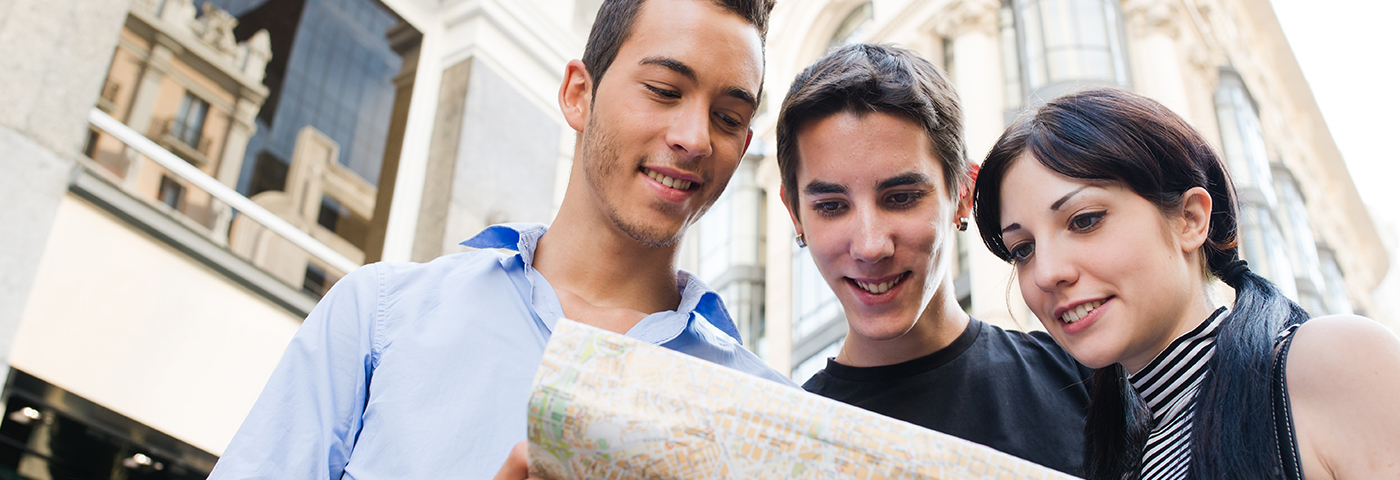If I was asked to sum up the challenge facing tourism in one sentence, I would say something like the following:
Can the travel industry of the future be environmentally sustainable, while offering enriching holidays to as wide a group of people as possible, all while protecting the integrity of destinations people visit and promoting increased cultural understanding?
It’s not catchy, but then the challenge isn’t simple.
Last month, the European Commission – perhaps inadvertently – came up with a sort of draft answer. Unsurprisingly, it too was not very catchy. But as said, this is a complex challenge.
At the end of March the Commission announced funding of EUR 2.5 million for a project called Move2Learn, Learn2Move. Marking 60 years of the Erasmus education programme, the project will later this year select between 5,000 and 7,000 young people aged 16 and award them travel tickets worth €350 or €530, depending on where they live.
A great holiday beckons for thousands of children. What makes the scheme interesting for the industry as a whole, however, is how the selections will be made.
It all started with a really catchy idea. Last September members of the European Parliament debated whether young Europeans should be given a free Interrail pass on their 18th birthday. (At the moment, a monthly Interrail pass costs between €43 and €493, depending on how far and how frequently one travels and around 300,000 young Europeans use this programme each year).
Last month, this big, bold scheme was deemed too expensive (for now), and so the scale has been replaced with ‘a second class option’ of the thousands of tickets being awarded this year. It is worth studying in more detail, however, as a template for imagining the future of the industry.
Why? Because the way it is structured focusses on making tourism more sustainable, while increasing access to its opportunities for those from more disadvantaged backgrounds, and doing all this while supporting greater connection to the destinations people visit. In other words it is pretty close to the trifecta of major issues a more responsible tourism sector should focus on.
School children will debate and plan where they might go and why, and then put their proposals forward. They will spend time in their classrooms envisioning creative, engaged travel. And they know that the trips will be selected on the “extent to which social inclusion (e.g. of disadvantaged young people) has been taken into account in their project and whether the class has travelled abroad before.”
As they discuss these issues and how their trips might engage with them, they will be aware that the trips they propose have to meet two further criteria, one focussed on the carbon emissions of the travel options chosen, and the other encouraging longer stays.
They will have to calculate the carbon intensiveness of their itinerary so that the average CO2 emissions per kilometre travelled does not exceed the figure 200, using a weighted average scale of 14 for rail, 68 for buses & coaches, 86 for medium ferries, 258 for small ferries and 285 for planes. This means that no trip that is exclusively by air (or small ferry) will be possible.
While it will still be feasible for the children to include air travel in their plans, they will have to include overland travel, probably by train. They won’t be offsetting by donating to charity – they’ll offset by travelling by land. I hope online carbon calculators such as Carmacal will be getting a lot more hits this summer as the teenagers weigh up the climate pros and cons of their various travel plans.
Finally, as they plan their itineraries, they will know the ratio between the time spent travelling and the time at destination should not exceed 1 day travelling to 4 days in a destination. By promoting shorter journeys and longer stays the scheme is encouraging students to visit and get to understand their neighbours better, rather than jet off a long way away for a quick fix of the exotic. They can go further, but they will have to stay longer to justify it.
It would be easy to criticise this scheme as being bureaucratic and complicated. Yet it is attempting something new and difficult, and that is grappling with the unavoidable truths that the complexities of addressing climate change and supporting social justice will become ever greater factors in our decision making. People will either choose less carbon intensive and more socially just options on principle, or tax and legislative instruments will mean the more intensive choices are made more expensive, or even restricted all together.
By including these as key influences in the way the scheme awards its grants, Move2Learn, Learn2Move has acknowledged and begun to imagine a future world of travel where such externalities are factored in. As always with Europe, there’s a long way to go. But they’ve given us draft one.


